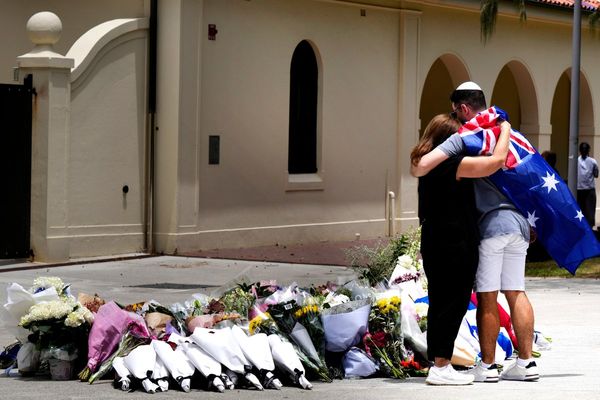
Two more schools have been added to the list of Queensland locations that have received soil potentially contaminated with friable asbestos.
Calamvale Special School and Walloon State School on Thursday joined St Aidan’s Anglican Girls’ School and the Everleigh dog park as public places supplied with soil that may have been tainted with the dangerous material.
Authorities first discovered two pieces of friable asbestos at waste facility NuGrow on 20 February in a proactive investigation by the Queensland government after asbestos was discovered at more than 60 sites across New South Wales.
As well as the schools and dog park, about 16 businesses, mostly landscape suppliers, have received soil from the NuGrow waste facility in Ipswich over the last month. Three households have also contacted the state government pollution hotline concerned that they may have received potentially contaminated material from a landscape business.
Environmental regulators have banned the businesses from selling the soil until it can be tested.
Peter McKay, a regulator at Workplace Health and Safety Queensland, said inspectors had attended all 16 businesses that had received material from NuGrow.
He said the three school and dog park sites were within areas under construction, so inaccessible to the public.
McKay said the high moisture in what he described as “garden soil” would also reduce the risk to the public or construction site employees. It is mostly used as underlay below turf or in garden beds below mulch.
“What we know with asbestos is that moisture is our best friend. And one of the best physical ways of managing asbestos is through water,” he said.
“We know that that this material has a much higher moisture content than you would see in something like a woodchip mulch, so therefore, further reducing that risk.”
The department has spoken with the builders responsible for the four sites and advised them to consult an asbestos specialist.
Brad Wirth, an executive director at the department of environment, said the results of the proactive testing at waste facilities had been returned in 18 out of 23 sites and all except for NuGrow had been negative.
“The remaining results are expected [Friday], however, we do understand there are backlogs at the lab due to the volume of samples that we’ve sent to the lab so they could be next week,” he said.
Wirth said they have expanded a testing program at other waste facilities across Queensland.
“We’re rolling out air quality testing, that will commence [Friday]. And we’ll be able to provide results next week around any particular findings that picked up in that air quality monitoring,” he said.
The entities received the product between 2 and 26 February 2024.
John Piispanen, executive director of the health protection and regulation branch of Queensland Health, said the best way for people to protect themselves was through the ordinary advice for handling compost.
“The usual sensible and practical precautions when using mulch, potting mix, and in this case, garden soil, is to wear gloves, wash your hands afterwards, and wear a P2 mask,” he said.
The environment department is still determining the appropriate way to dispose of the material already used in soil, which may include leaving it as it is.
NuGrow said on Wednesday there was “currently no evidence to suggest that people who may have come in contact with this material are at risk”.
Asbestos is prohibited from being accepted under NuGrow’s environmental authority. NuGrow is not authorised to accept asbestos. It is not yet clear where the asbestos came from, but authorities are investigating its source.
The department was still considering whether the company would receive enforcement action for the detection of the asbestos at the facility.
An investigation by Guardian Australia revealed last month that the NSW environmental regulator had known for more than a decade that producers of soil fill were failing to comply with rules limiting the spread of asbestos into the community.







